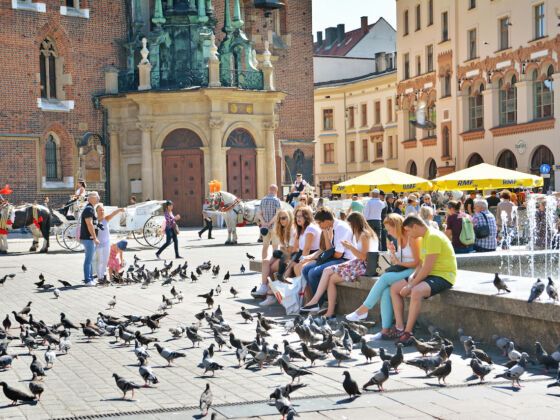I KNEW APPROXIMATELY THREE phrases in Polish before I arrived in the country. Although I would learn more — including several obscenities taught to me by friends, who found it hilarious to hear an American swear in their language — none proved more useful than przepraszam.
The word, which translates to “I’m sorry,” is perhaps most valuable on an invitation to a Polish home — a minefield of potential faux pas.
